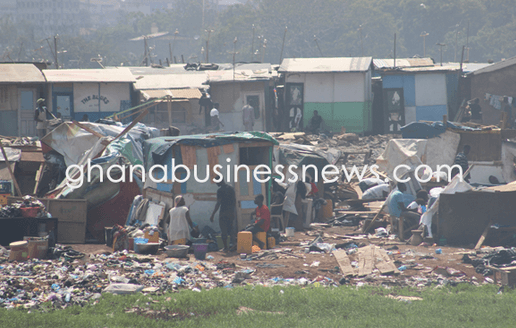More than half of households suffering from multidimensional poverty – GSS
 More than half of household population in 50 out of 261 districts (representing 19.2 per cent) are poor in various dimensions, data from the Ghana Statistical Service (GSS) has revealed.
More than half of household population in 50 out of 261 districts (representing 19.2 per cent) are poor in various dimensions, data from the Ghana Statistical Service (GSS) has revealed.
The district with the highest rate is the Nkwanta North District in the Oti Region with 79.7 percent, twice the national average of 29.9 percent; followed by the Northeast Gonja District with 77.7 percent.
The Sekyere Afram Plains in the Ashanti has 75.3 percent, with three-quarters of the household population living in poverty.
The indicators are from the Multidimensional Poverty District League Table released by the Ghana Statistical Service in Accra to commemorate this year’s International Poverty Eradication Day.
The Day is under the theme: “Dignity for all in practice”.
It said three of the districts in the top 10 with the highest poverty rates were in the Northern Region with Northeast and Oti Regions having two districts each.
According to the table, Nanumba North and Gushegu Municipalities, both in the Northern Region, were the only districts with over 100,000 persons living in multidimensionally poor households recording 114,226 and 103,852 persons respectively.
It said four out of the 10 districts with the largest population living in poverty were in the Northern Region-two in Oti, with Savannah, Northeast, Western and Volta having one each.
It said the New Juaben South Municipal in the Eastern Region had the lowest poverty rate in the country with only 4.8 percent of households suffering poverty, constituting one of the 21 districts with a prevalence rate of less than 10 percent.
Six out of the 10 districts with the lowest poverty rate are in the Greater-Accra Region.
The dignity of every human being, according to the UN, is not only a “fundamental right in itself, but constitutes the basis of all other fundamental rights.”
Today in the world, some 1.3 billion people, according to the UN, still live in multidimensional poverty with almost half of them being children and youth.
The UN projects that with unequal opportunities and income disparities sharply on the rise, the gap between the rich and poor will be wider.
Source: GNA
